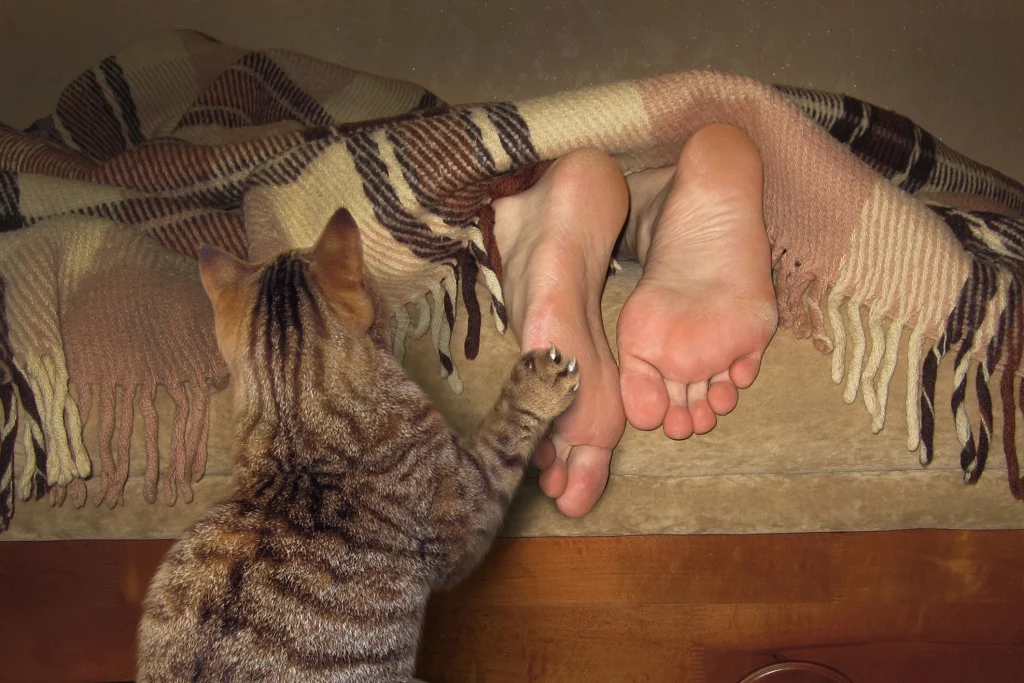You brought home a night creature. Behaviorists say your cat will be most active late in the evening when you are trying to get to sleep, and in the morning just before sunrise. Other cats have been known to be wide awake during the darkest hours in between. Each cat seems to have their own schedule. So how can you bring the prowling down to a comfortable minimum so you can get some sleep?
For your cat:
Cats like to eat and then nap for hours. After breakfast and a short nap, try to keep your kitty busy during the day with grooming, play, a lot of interaction, and making feeding a special time. Include ‘Cat TV’ and a dedicated place at the window where she can watch birds and squirrels play outside. These are things she would miss if she only played at night. Get a cat tree to encourage climbing and exercise, to help her sleep more deeply later.
It’s often an advantage to have a second pet so your cat always has a companion. They will keep each other company, especially if you are gone a lot.
Start your kitty off with a cheerful breakfast, but not immediately on her demand, or her sunrise pestering will never stop. Animals like to have a routine so they know what to expect. Teach her that breakfast only happens at a certain time, not necessarily at the first crack of dawn. You may even want to set an alarm so she will know that it’s not eating time until the alarm rings.
If you are a home parent, don’t let your cat’s siesta turn into an all-afternoon event. Get her engaged in an activity. Some pet parents take their cats for an afternoon walk in a cat stroller. Others say their cat enjoys laying in a sunny spot to have a spa-like grooming while they are still in a resting state.
Serve your cat’s evening meal a little late, so she won’t get so hungry during the night. Before bed, prepare a midnight snack with a full water bowl and a puzzle dish that she will have to solve if she wants a nibble during the night. If she tends to get very hungry during the night, an automatic feeder may help.
Spend quality time with her before going off to sleep. Some cats will behave like dogs, running into the bedroom, eagerly waiting for their pet parents to settle down and snuggle.
For you:
Before you retire for the night, make sure you have put away everything that is dangerous or could be shattered.
Install nightlights, not because the cat needs it, but you will if you get up to investigate anything.
Make sure vulnerable body parts are covered if your cat is a toe hunter or finger nibbler, for example. You may have to shut the door to get good sleep.
If your cat appears anxious and paces in excess activity, it might require a trip to the vet to rule out some causes.
Sometimes the meowing at night sounds awful, but often there is no real cause for alarm. As they get older especially, cats tend to ‘sing’ or talk to themselves more. However, if your cat is persistent about waking you, pay attention. She may be sick, frightened or trying to tell you something important.

